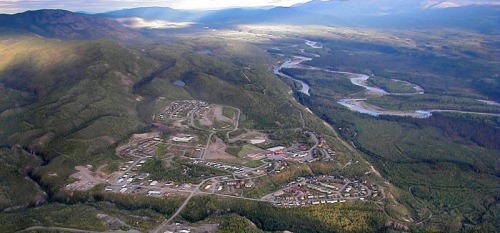
Innovations arise from an honest identification of problems and articulate, targeted solutions, backed by plan to achieve results through understanding and effort.
KEY CONCEPTS: community development; communication; responsibility; effort; understanding
Continuing from our previous blog, here we explore some of the best practice, needs and suggested innovations that key stakeholders in Faro shared with us during our visit back in November 2011.
Assuming a starting-point that Faro is a mature community – that is, a community that recognizes the importance and value in looking after its citizens for the betterment of all – stakeholders identified features of the employment landscape that would benefit from a careful review regarding the principles of universal design, accessibility and equity.
Keeping this in mind, the following is a selection of the headline disability employment issues identified by residents of Faro:
- Employers are open to hiring and accommodating disabilities in the workplace, as both a matter of civic responsibility but also as a function of effective business development through retention of qualified, experience staff.
- Physical barriers to people with disabilities limit more than simply access, they affect employee perceptions regarding the accessibility of management and the sustainability of the business itself.
- Small communities like Faro work together to resolve community issues; failing to do so jeopardizes community unity, placing strains on familial and business relationships.
- Small business in rural Yukon don’t tend to look to government departments in Whitehorse for supports or solutions to problems. Rather employers get on with the business of enabling their employees, each day, every day. Layers of bureaucracy to resolve problems in the workplace are associated with impersonal businesses and employment in the city, not Faro. Even the employees of the mines feel they are part of a community, in part because their co-workers are permanent or regular residents of the community.
- The key to establishing an accessible and equitable working environment is a flexible management style that promotes the principles of mutual respect and a willingness of all parties to work together to identify and implement solutions.
- An ageing population in Faro requires specific accommodations in order to retain this valuable, experienced workforce. Adjusting schedules, particularly during cold winter months for those working outdoors can provide welcome relief and reduce the likelihood of injury and leaving the labour force for good.
- Snow and winter present specific challenges to people with disabilities – including getting to and from work.
- There is no overarching community development plan for creating universally accessible public and private sector facilities/spaces. The community is interested in the principles of universal design and recognises the benefits for all citizens. A town that subscribes to the principles of universal design is a town that recognises that every person will eventually benefit from accessible spaces and places.
- Accommodating disabilities in the workplace requires effective communications between employees and employers. But in order to have effective communications, trust must be established through a mutually respectful working relationship, where neither party feels they might be at risk for addressing what has historically been viewed as a potentially conflict-based (even litigious) issue.
- Establishing effective communications between employees and employers requires a hard and fast policy with a clear and readily implemented procedure. The procedure might include regular (daily) employee-employer meetings/check-ins to confirm that all members of the business team have the resources and information they require to effective in the workplace.
- Costs of establishing effective policies and procedures for creating an inclusive workplace can be a barrier to small to medium size enterprises. A Yukon Disability Employment Strategy will need to effectively coordinate existing services and resource for employers such that solutions to existing barriers to employment are not impeded by a lack of essential supports.
- Coordination of employment strategies with neighbouring towns (such as Ross River) will benefit the wider area, and bring a further benefit to Faro and its citizens. A strong mining sector demands a scalable, healthy, and ready-to-work labour force – made more likely by tapping in to area labour markets and raising the standards of care and opportunity across the whole region.
Our conversations with key stakeholders in Faro energized this initiative by demonstrating the communities are not only adept at identifying problems, but they are also just as willing and ready to innovate solutions – on the spot – with a view to making changes immediately and for the longer term.
The insights of Faro residents could perhaps be summarized by a rather ingeniously simple impromptu mathematical formulation (derived by a class of students on the Faro campus of Yukon College) regarding a solution to the disability employment problem – a social policy 'proof', as it were. The formula is…
R = U + E
Results = Understanding + Effort
The Results are reliant of the two variables Understanding and Effort. Breaking this formula down a bit further, we can see that Understanding and Effort alone will provide results…only, individually, they produce a smaller factor R, than when added together. As Understanding and Effort are increased, Results increase incrementally. We could explore this further, breaking down the factors that comprise Understanding and Effort – working to maximize all those factors that feed in to this formula. But, that is for another day – and with the help of the originators themselves.
I like this algorithm, almost as much as I like the people of Faro, as it is a clear and direct articulation of what it takes to achieve a goal. In this case, our goal is to increase the representation of people with disabilities in the workplace: a goal that has benefits for the wider community of Faro, and the whole of Yukon.

